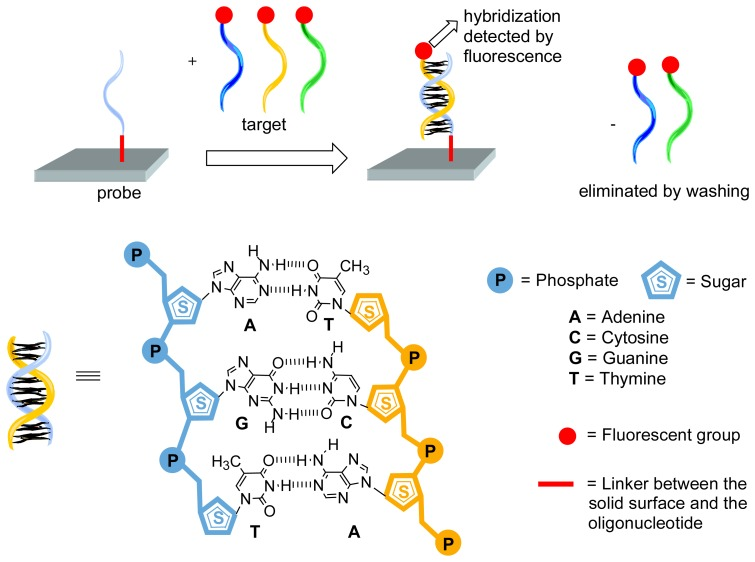DNA chips, also known as DNA microarrays, are revolutionary tools in genetic research and diagnostics that allow scientists to analyze thousands of genes simultaneously. These compact devices have transformed the fields of genomics, personalized medicine, and biological research, enabling rapid and precise genetic analysis with wide applications in healthcare, agriculture, and more. In this blog, we’ll explore how DNA chips work, their applications, and why they are considered a cornerstone of modern genetic research.
What is a DNA Chip?
A DNA chip is a small glass or silicon plate with thousands of tiny spots, each containing a specific DNA sequence known as a probe. These probes are designed to detect specific DNA or RNA sequences, allowing scientists to determine gene expression levels, identify genetic mutations, and compare genetic material across samples. DNA chips offer a high-throughput platform for genetic analysis, which means they can simultaneously analyze thousands or even millions of genetic sequences, making them incredibly powerful for comprehensive genetic studies.
How Do DNA Chips Work?
Probe Design: Each spot on the DNA chip contains a unique probe designed to match a specific sequence of DNA or RNA. These probes are complementary to the target sequences that researchers want to study.
Sample Preparation: A sample of DNA or RNA is collected and prepared for analysis. This sample is often fluorescently labeled to allow for easy detection.
Hybridization: The prepared sample is introduced to the DNA chip, where it is allowed to bind, or hybridize, with the probes. When a target DNA or RNA sequence finds its matching probe, it binds to it, creating a detectable signal.
Detection and Analysis: After hybridization, the DNA chip is scanned using a high-resolution laser. The fluorescent signals indicate where binding has occurred, allowing researchers to determine the presence and amount of specific genetic sequences.

Applications of DNA Chips
DNA chips have numerous applications across a range of fields. Here are some key areas where they have made a significant impact:
1. Gene Expression Profiling
DNA chips are commonly used to measure gene expression, which helps researchers understand how genes are activated under various conditions. For instance, scientists can compare gene expression profiles between cancerous and healthy cells, offering insights into cancer biology and potential treatment targets.
2. Genetic Mutation Detection
DNA chips can detect genetic mutations associated with various diseases. This is particularly useful in identifying hereditary disorders, cancer biomarkers, and other mutations linked to specific diseases. By analyzing DNA samples with a DNA chip, healthcare providers can identify mutations quickly and accurately.
3. Pathogen Detection and Disease Diagnosis
DNA chips are valuable in diagnosing infectious diseases. By designing probes specific to pathogens, scientists can identify the presence of bacteria, viruses, or other pathogens in a sample. This application has been critical in managing outbreaks and tracking infectious diseases.
4. Pharmacogenomics and Personalized Medicine
Pharmacogenomics is the study of how genes affect a person’s response to drugs. DNA chips enable researchers to assess an individual's genetic makeup and predict how they will respond to certain medications, paving the way for personalized treatment plans that improve efficacy and reduce side effects.
5. Agricultural Genomics
DNA chips are also used in agriculture to study plant genomes and improve crop traits such as disease resistance, yield, and nutritional quality. By analyzing plant genetics, scientists can develop more resilient and productive crops, which is crucial in addressing food security.
Advantages of DNA Chips
The popularity of DNA chips in research and diagnostics stems from several key advantages:
- High-Throughput Capability: DNA chips can analyze thousands of genes at once, allowing for comprehensive genetic studies in a fraction of the time required by traditional methods.
- Precision and Sensitivity: DNA chips offer high accuracy and sensitivity, which is essential for detecting even minute genetic variations and changes in gene expression.
- Cost-Effectiveness: With advances in technology, DNA chips have become more affordable, making large-scale genetic studies more accessible to researchers around the world.
- Adaptability: DNA chips can be tailored to target specific genes or mutations, making them versatile tools in both research and clinical settings.
Future Prospects of DNA Chips
As technology continues to evolve, DNA chips are expected to play a larger role in personalized medicine, disease prevention, and therapeutic development. The integration of artificial intelligence and machine learning with DNA chip data is also anticipated to enhance data analysis, allowing for even more precise and predictive insights.
Researchers are working to improve the resolution and sensitivity of DNA chips, as well as to reduce their costs further. Additionally, the development of portable DNA chips could bring genetic testing to remote and underserved areas, democratizing access to genetic information and personalized healthcare.
Conclusion
DNA chips have opened new horizons in genetic analysis, offering fast, accurate, and high-throughput solutions that have revolutionized genetics and molecular biology. Their applications in healthcare, agriculture, and environmental science demonstrate their versatility and potential to drive further discoveries in the coming years. As DNA chip technology advances, it will continue to shape our understanding of genetics, contributing to a future where personalized and precise treatments are the norm.